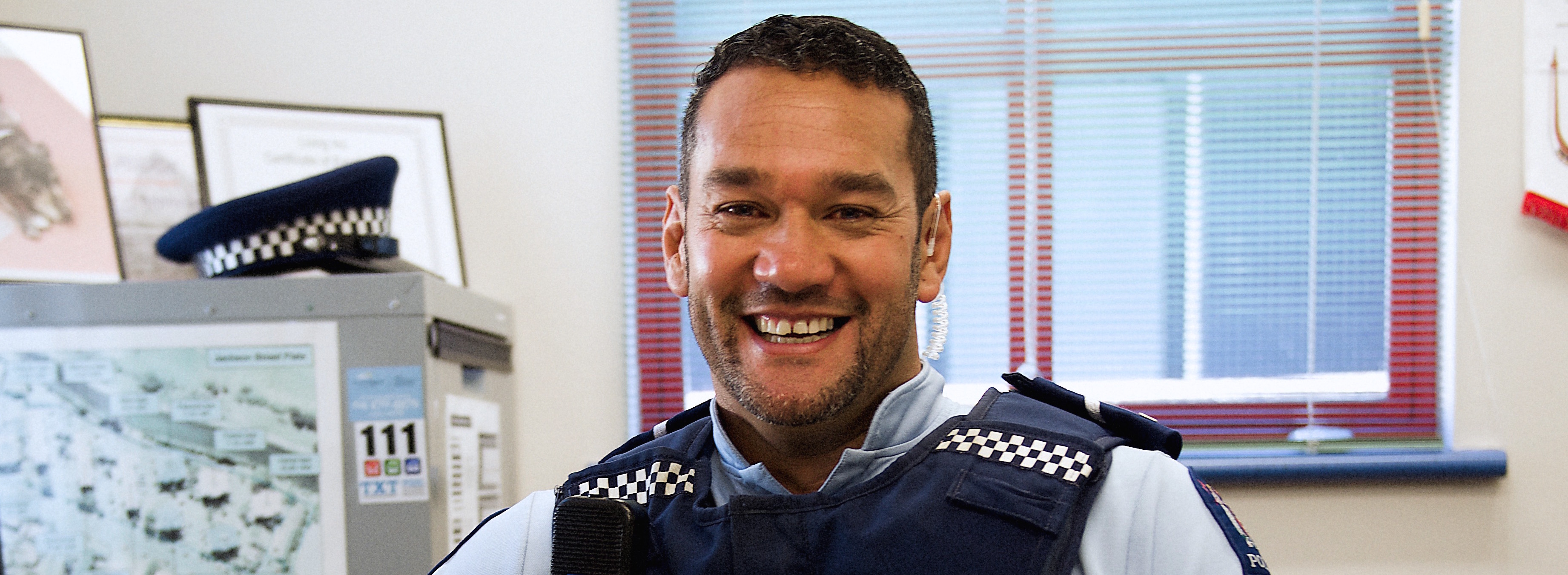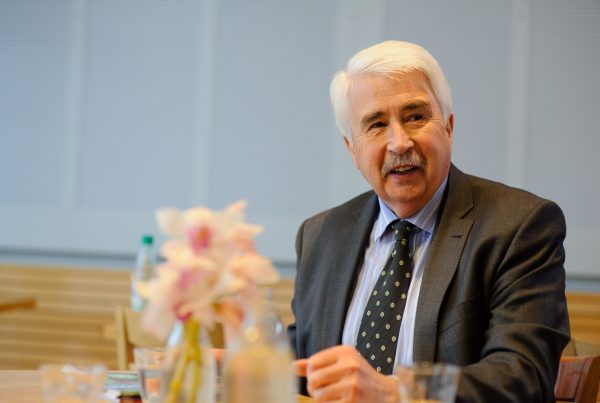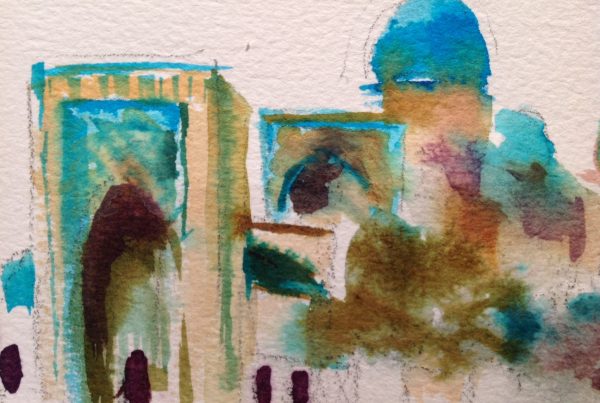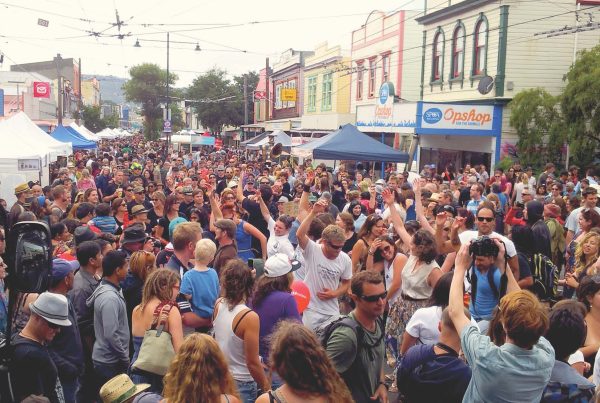They say you could build a battleship in Petone, and I reckon that’s probably right.
Photographer Anna and I are taking a drive in Senior Constable Rasau (Russ) Kalivati’s patrol car. It’s been 20 years since I was last in a police car, and this is my first time ever sitting up the front. Russ is engaging, quite brilliant company, and maybe the very best advertisement the New Zealand Police could have.
Russ lived in Petone for many years, and for the last two-and-a-half he’s been back here every working day, as Petone’s own community constable. For the nine years before that, Russ had the same position in nearby Naenae. We’ve been talking about the area, and Russ pretty much bubbles with pride about the place and its people. But even so, his assertion that we could turn our own antipodean Bismarck out of this place comes as a surprise. But you know what… he’s probably right. There’s industry here, and invention. Along with Porirua, it is Petone and neighbouring Seaview that are the last manufacturing powerhouses of the region. Long after Wellington has forgotten how to make anything but a movie or a phone app to rate your last craft beer, Petone and Porirua will still be moulding, milling and creating the stuff we need to live in the real world.
It’s a nice insight, from a hell of a nice guy. It’s an observation that connects this place and day to another time and generation. Which seems appropriate.
I wanted to be a cop pretty much my whole life. Even when I was eight years old. Both of my brothers were in the force. They were both older than me by years, and I grew up seeing them in their uniforms, hearing their stories, and I knew then it was what I wanted. It’s strong in my family. My granddad was in the force back in England — in the 1940s and 1950s he was London Metropolitan Police, on the motorbikes. So I grew up with his stories, and photographs of him. So I know that was an influence too.
My dad was Fijian. He was in the army. The Fijian army at first, but then he joined the New Zealand Army. He had come here, and met my Mum, and he was a brilliant athlete — at rugby, boxing, anything he tried really. So the New Zealand Army really wanted him with them.
Russ laughs here, and I have an image — probably completely wrong — of stuffy colonial officers beaming with pride as ‘their man’ brings home the medals.
I actually joined late, even though I knew it was where I was going. I was a bank officer at first. But I made it to police college, and I graduated on my 30th birthday.
One of the things I like the most — with the community work — is that you get to see a thing right through. Most police work, you take it so far, and then your work and results are going to be handed off to another department to follow through. And that’s fine; at that level it’s the only efficient way to do the job. But at the community level, I get to see a problem through from beginning to end, and I love that.
It might be low-level stuff, that in the great scheme of things is pretty minor. But I’ve had people come in and tell me they can’t sleep at night, or they can’t concentrate on their families properly, for worrying over a dispute they are having with their neighbour. It might be something like a tree on someone’s property, and a row over pruning it. I mean, it’s minor to you and me, but it’s these people’s quality of life.
I like this a lot. It makes a pile of good, calm sense, and it resonates with me, bringing back conversations with elderly parents a few years back. Russ carries on.
So some of what I do is just mediating before a dispute can flare up, or get worse, or carry on in a way that wrecks someone’s enjoyment of their own life. And what I notice is that people will come in, quite fired up, saying, “I want you to prosecute so and so”, and at the end of a meeting, they’ll be shaking hands and talking, and offering to lend them a trailer.
I mean, most people can get there themselves, and aren’t going to need us to mediate. But some of the most vulnerable people around here, they haven’t got the skills or the confidence for that, and it matters that someone should be there for them. You know, community is for everyone to enjoy. Some people need a hand with that.
We talk here for a while about the style and approach to policing that the community constables can bring. How being approachable at ground level can pay dividends even the most conservative of us could appreciate.
I’ll give you an example. A while back I was giving a talk at a school not far from here. And I’d got there early, and was having a walk around. I knew that there had been a break-in the night before, some windows broken. And a bunch of the local kids were watching me, and chatting, and following me around. And we just talked. I didn’t ask them directly who might have done it, but soon enough a few of them pipe up, “We know who did that”. And that’s a big thing, because the culture in New Zealand — especially at their age — is never to be a nark. That’s the lowest of the low.
I suggest to Russ that the kids were hanging back until they realised they could trust him, and that the essential equation for the kids to make was knowing that their friend would be better off being caught now by someone like Russ, than in another few years when their treatment might be a lot more impersonal.
I think that’s about right. It’s not quite as clear-cut as that, but they all want to live in a good place, and most of them realise after a while that that’s what the police want too. They have to know that they can trust us.
I always say, when I’m dealing with an offender, that I want him or her to be treated the way I’d want someone in my family treated. That’s what’s always at the back of my mind.
Someone said to me once that policing is the same all over the world. It’s always the same job: helping keep communities working properly. The only thing that really changes are the individuals. And maybe they’re not so different either.
One thing this job has taught me is that everyone pretty much knows the solution to their own problems already. Just some people have a hard job seeing it or expressing it. I know when people come to me with a dispute, and they say to me, “Well, what are you going to do about it?” Usually I just ask them straight back, “What do you want to happen? What do you think the best solution is?”, and almost always they’ll know exactly what they want, and nine times out of ten it just comes down to acknowledgement.
People just want a conversation, or a simple apology, just some acknowledgement that they haven’t been ignored, that they are respected. And I think that’s probably true right across society. And the person who’s going to do that most often is the person who has been respected themselves.
I ask Russ here about something that’s been much on my mind the last few years, because I figure he’s in a better place to comment than most: among the most vulnerable of the community around him — the unemployed, the elderly and the people who are just the least able to cope psychologically with the 21st century — does he think they are better off or worse off that they were ten years ago? Russ stops and gives the question real consideration. We both know that politics and policy are off limits, and Russ phrases his answer carefully.
What I can tell you, from my own observation, is that there are far more homeless people. It used to be quite rare. We would see homeless people who, for whatever reason — mainly mental-health issues — who chose to be independent and alone. But now, I think it’s different.
And people begging… I’ve definitely seen an increase there. I think in part there’s an increase in the acceptability of begging, that people are actually more willing to take it up than they would have been a few years ago. But I think there is an increase in actual need too, for some people.
We talk here for a while about addiction, about the beggars we have both seen who have no interest in being given burgers and pies by bleeding-hearts like me, but who are on the streets to make enough money to feed their addictions.
We don’t get into the proliferation of bottle shops, the effectiveness of the campaign against methamphetamine or the fine I copped last week for riding my bike without a helmet. I kinda wish we had, but I asked for only an hour of Russ’s time and I’ve already been here for two-and-a-half.
We’ve driven past housing corporation flats and prosperous water-view apartments, and through busy industrial estates and deserted factory precincts. We’ve talked about the neighbouring communities of Alicetown, Wainuiomata and Eastbourne; about people Russ has met, his family and sons, and what he hopes for this place in the future. It’s been a terrific day, and even more than usual I’m looking forward to finding a quiet café and getting the laptop out to write it up. Like most people, I’m a lot less cynical than I pretend to be, but today I am actually quite inspired.
Maybe it’s the weather.
The way I see it is that crimes shouldn’t happen at all, but they do, and people have to be able to rely on the police when it happens. The law is designed to protect people, and people have to know that laws make society work, and that the police are there as guardians of the law and order.
Russ puts a very faint beat between the words “law” and “order” here. It’s clear on my recording, and I like it a great deal. I’ve pretty much always pronounced ‘law and order’ as one word, one concept, without pausing to consider that they are two sometimes quite different things. We all know what ‘law’ means, but ‘order’ is more nebulous, more open to individual interpretation, even if it’s not a word we spend much of our day thinking about.
And I think maybe that’s what makes a great community constable — that ‘order’ is something they are constantly seeking and defining, even as the economics and the circumstances of people’s lives shift around them.
The most important thing you can bring to this job is empathy. In fact, the next two most important things are empathy as well. Empathy, empathy and more empathy. And a sense of humour.







